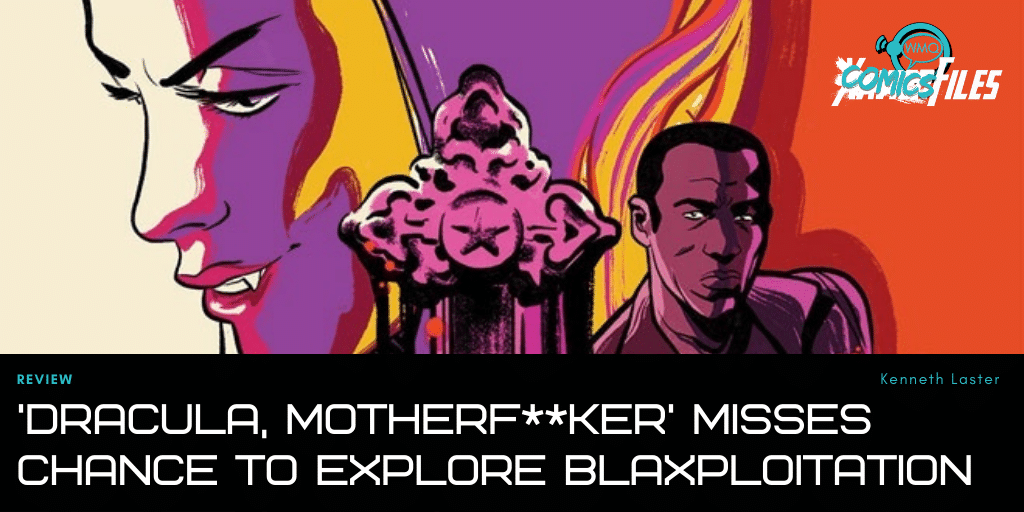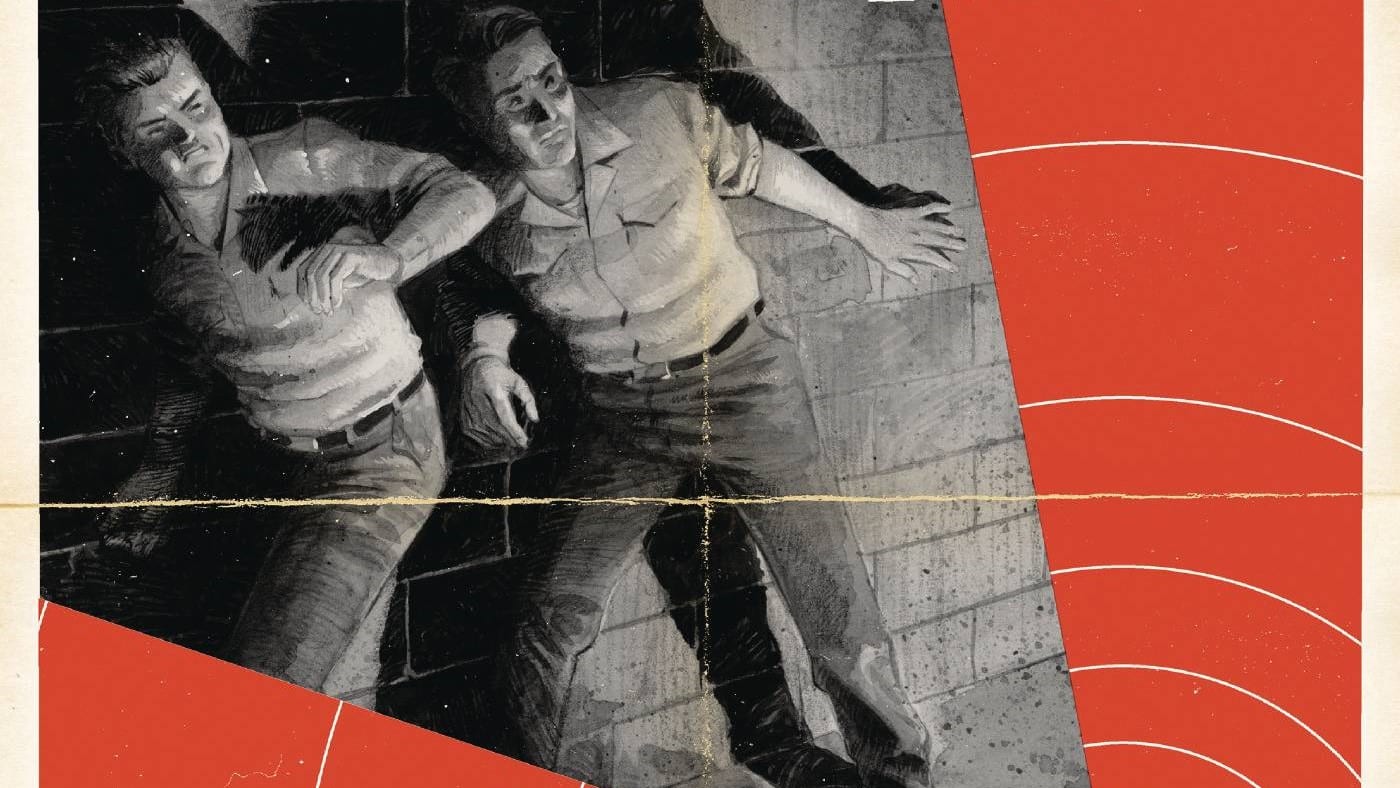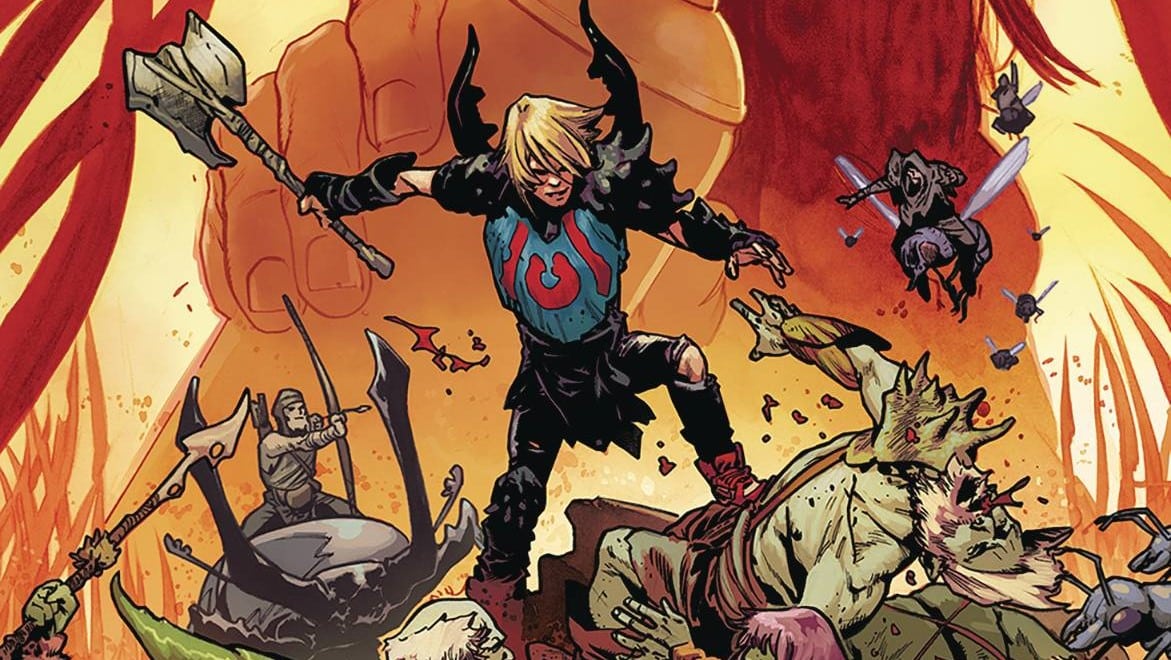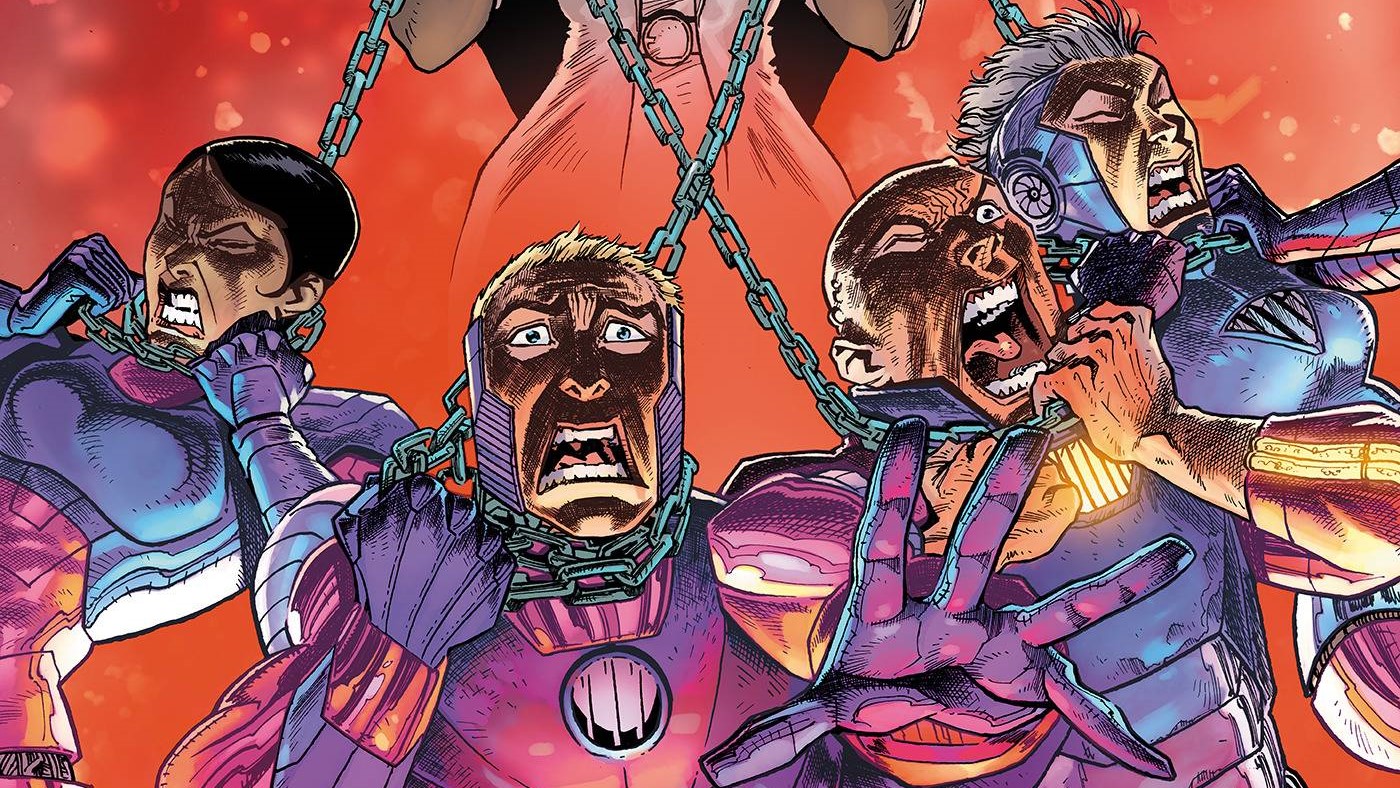Dracula, Motherf**ker
Writer/Letterer: Alex de Campi, Artist: Erica Henderson, Publisher: Image

Dracula, Motherf**ker is an absolutely gorgeous graphic novel that I can’t shake feeling frustrated with.
To start off with the gorgeous, Dracula, Motherf**ker is by far Erica Henderson’s best artwork to date. The use of color and texture throughout the book continue a lovely evolution from Unbeatable Squirrel Girl to Assasin Nation to this. Henderson’s approach to layouts by spreads rather than individual pages gives the book a flow and cohesive style that evokes the funkadelic posters of the era while maintaining its noir/pulp tone. Alex de Campi pulls double duty on the script and on letters, which blend seamlessly into Henderson’s art to create a unique and satisfying graphic quality.
De Campi’s script is a very tight, if not short, exploration of revenge, as the brides of Dracula team up to kill him in sleazy 1970s Los Angeles. Along the way they encounter Quincy Harker, reimagined as a photographer who gets wrapped up in the plot. The story is bare bones, and the dialogue captures a very specific noir tone. All of these serve an extremely timely story that re-re-contextualizes Dracula from a goth hottie back into the avatar for the social anxieties of sexual predation that he was in a cultural context. The story feels very modern and very relevant in the way it asks “why a creature so old takes brides so young,” which speaks to the moment where grooming, among many other, subtler forms of sexual manipulation, are coming to light in many industries, particularly comics.

There’s a lot to love about this graphic novel, and if certain things were different, my only complaint would be that it was too short. Dracula, Motherf**ker was a book I was really looking forward to once it was announced, but after reading it I couldn’t shake the feeling that something was missing. After mulling it over in the time since reading the advanced copy, it came down to one question:
Did this need to be a Blaxploitation riff?
In the backmatter, de Campi gives reasoning for the modernization of the cast of this book after having the realization that Quincy Harker was the “most accidentally Black name in white literature.” This quote stuck out to me, and I think it gets to my deeper frustration with this book. The choice for a Blaxploitation aesthetic really does not go any deeper than that. Aesthetic.
Yes, Quincy is Black; yes, Ateera is Black, but there is no real engagement of their Blackness. The Blaxploitation genre had some cool looks and a killer vibe, but it did not exist in a vacuum. It served as a challenge to race relations at the time in the way that it pushed Black empowerment and served as a defining shift in Black culture. Dracula, Motherf**ker does not really pay homage to any of this beyond aesthetics. It’s frustrating because the message at the core of this is so deeply feminist and radical but just misses the mark of intersectionality. Just having Black people present does not inherently make feminism intersectional. Did Ateera’s Blackness affect her relationship with Dracula? How does being an immortal Black woman affect how she exists in this world? Does Harker’s Blackness affect his job where he has to have a rapport with cops? I’m not asking for these characters to endure racism or be stereotypes but I need…something.

Colorblind casting in reworking old stories is great, as is having a diverse cast of characters. It’s important for people to see themselves reflected across a variety of stories, and not every story needs to have in-depth explorations or justifications of a character’s race to be a part of a cast. Even I feel like I’m being too hard on this book. But you can’t name a book Dracula, Motherf**cker, base it on Black cinema aesthetics, and lack room for any exploration of Blackness.
Aesthetics are complicated and can get divorced from historical and cultural impact, and in the case of Dracula, Motherf**ker, it’s led to a mixed reception at least for me. It’s a stunning book to look at and has a timely story at its core. I just wish I hadn’t read the Quincy Harker quote so I could have enjoyed it a bit more.
Kenneth Laster is a critic, cartoonist, and cryptid with a movie degree.






